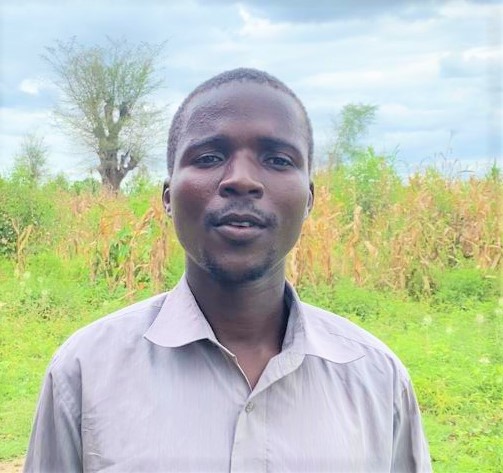Stock-Piling Ignites Hope Amid Perennial Disasters in Phalombe District
 Edina Bauleni, of Phalombe District, southern Malawi, was inconsolable when her house collapsed and crops washed away as a result of heavy rains in 2019.
Edina Bauleni, of Phalombe District, southern Malawi, was inconsolable when her house collapsed and crops washed away as a result of heavy rains in 2019.
The heavy rains had hit Malawi causing flooding in most parts of southern region, including Phalombe. Scores of houses collapsed, crops and livestock were washed away, leaving communities devastated.
"I struggled to sustain myself and my children. I did not receive any assistance after my house collapsed,” said a divorced mother of three, referring to the government support that suffices when disaster strikes.
Phalombe, being a low laying district, is a perennial disaster zone.
According to Samson Nakonyo, Area Civil Protection Committee Chairperson (for Traditional Authority Jenala), there is often a delay in disbursing food relief when such disasters occur.
For instance, after the floods of 2019, it took more than one week before any assistance was distributed by government and other well-wishers.
“We have had instances where children have fainted with hunger. As a committee it has been tough running around, reaching out to members of parliament and households begging for food to serve those affected,” he says.
On a larger scale, these disasters have a great impact on people’s lives, livelihoods as well as personal development, leading to poverty and food insecurity for the scores of families directly affected by calamities.
In a bid to ensure that communities are self-reliant and can be able to quickly respond when disaster strikes, Save the Children, with support from a donor - Disaster Emergency Committee (DEC), came up with a number of interventions in the areas where these disasters often occur.
In these areas, community members were trained and equipped to be self-reliant by using local resources to aid disaster victims while they wait for government and other stakeholders to intervene.
“We engaged the community members and chiefs at group village level and agreed to start reserving food and other needs so that, in case of disasters, we would be able to help ourselves,” Samson said.
Communities are also sensitised on the need for stockpiling—mobilising food in the community so they can help themselves when natural disasters occur.
This is done through the civil protection committees.
“This initiative acts as first line of defence to the community. For example, over 50 households who were affected due to heavy rains in 2020 were immediately assisted with over 27 bags of maize from the stock-piling bank," explained Mgudugudu Mweso, who is Save the Children livelihood officer in Phalombe.
"When my house collapsed this year, unlike previous years, I was assisted through the food which we had kept and collected as a community,” noted Bauleni.
In 2020 alone, Traditional Authority Jenala, where Bauleni comes from, mobilised over 35 tonnes of maize.
And to avoid the damage of stocks, the community agreed to sell what they had kept in stock so as to create a buffer fund to use in future if any such disasters occur.
According to the Nakonyo, the biggest lesson that the community had taken from the disaster management programme is that they are capable of sustaining themselves if they harness the different artisan skills within the community.
“A clear lesson from the stock-piling to us, as a community, is that we can bring together the different artisans within the community—builders, tinsmiths, carpenters or tailors—to assist those affected during disasters,” he said.
He explained that when disaster strikes, there is need for temporary emergency shelters.
“It is possible to get the builders, carpenters and tailors to construct temporary shelters, tailor uniforms for learner affected by the disaster. We have also learnt that we can raise enough resources amongst ourselves to assist the neediest while we await assistance from district or national disaster offices,” he said adding that the project has also empowered them to revamp the environment as way of reducing flooding and other disasters.
 Malawi
Malawi